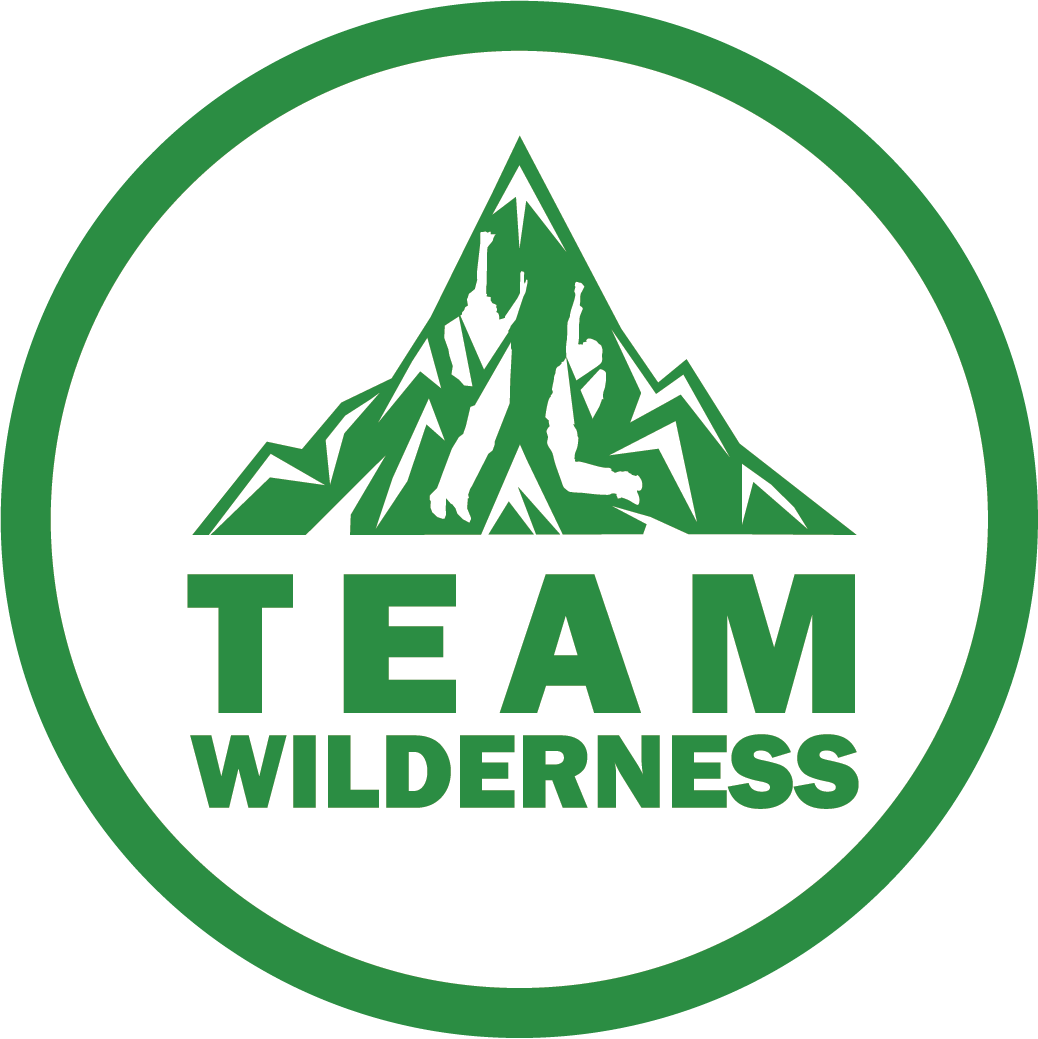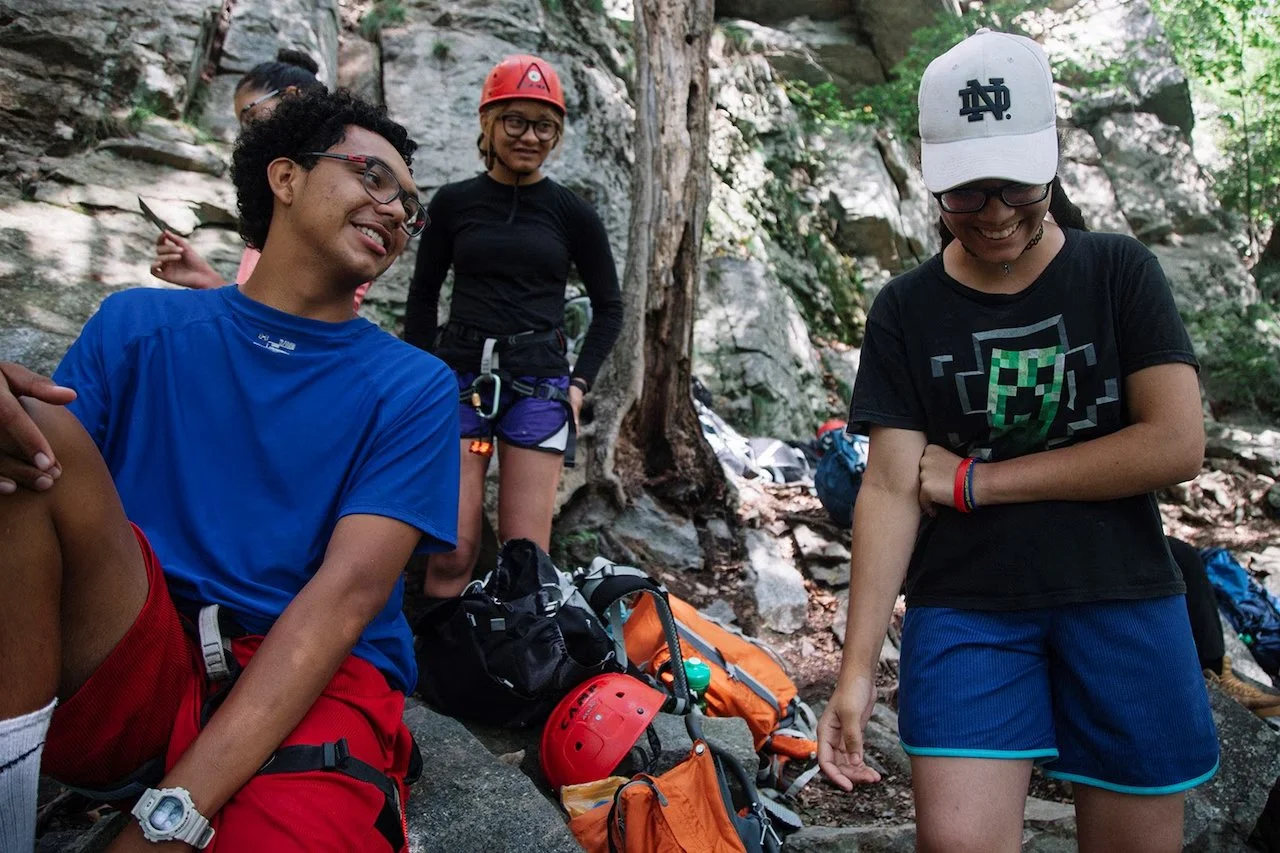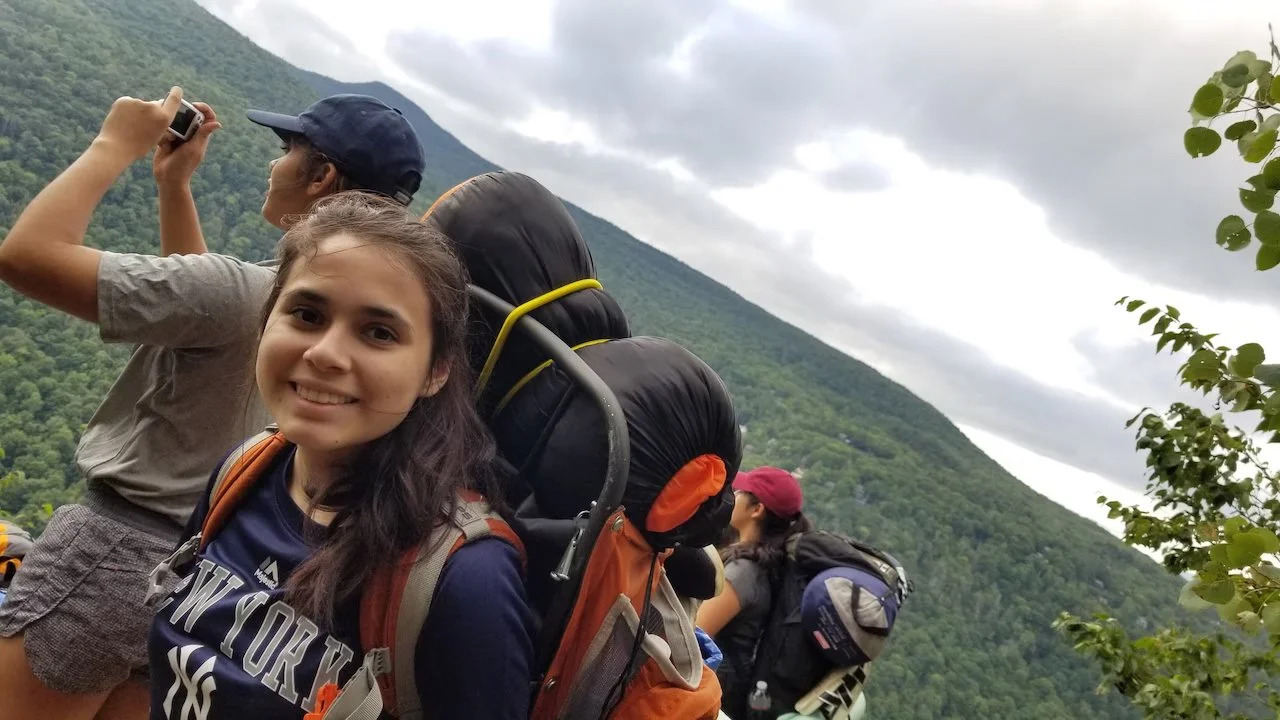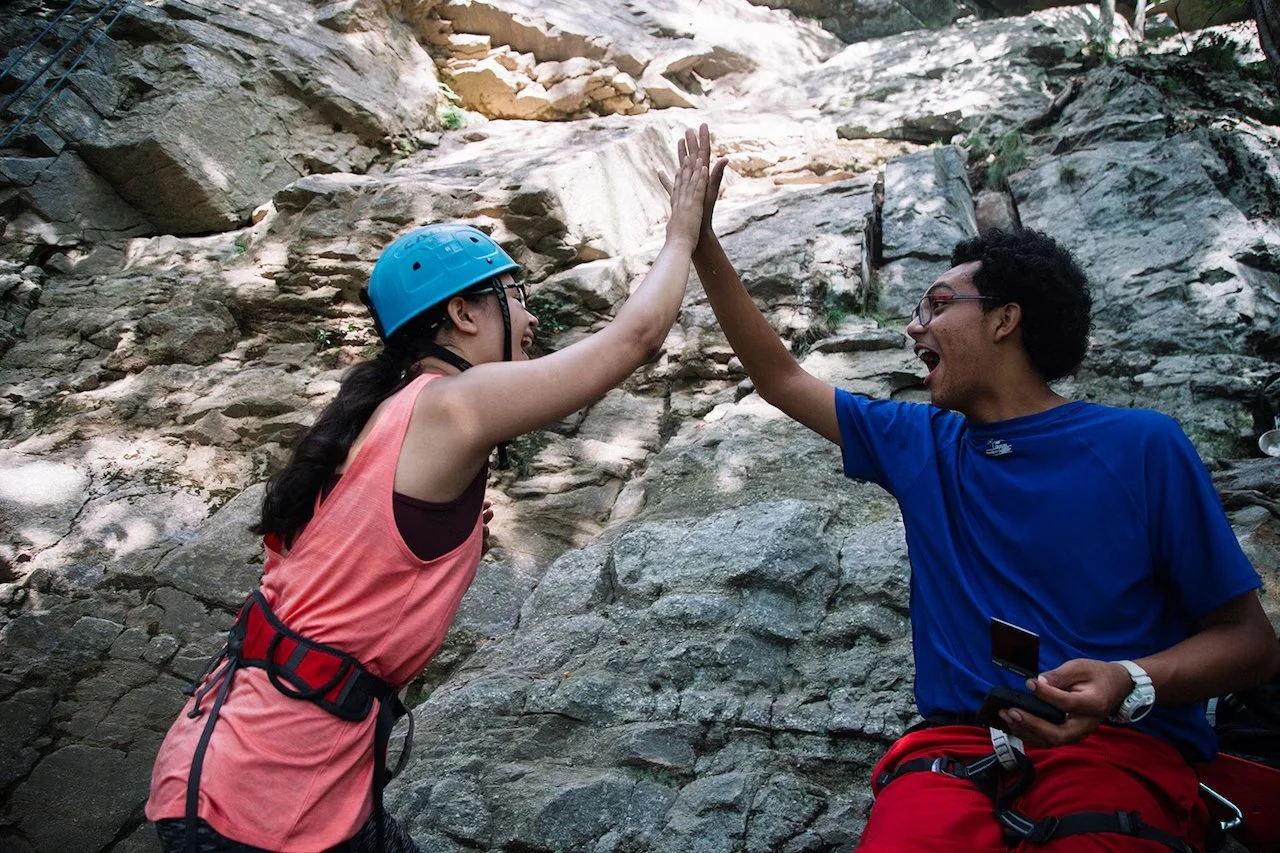Nonprofit gets Jersey City kids into the wilderness – and out of their comfort zone
Published: Mar 01, 2019 - View the original story on NJ.com
By Patrick Villanova | The Jersey Journal
Jared Sosa, left, chats with other Team Wilderness participants during the summer of 2017. (Courtesy of Alyssa Ki)
By the time Kiara Jorge reached a lookout near the top of South Mountain, a 2,400-foot peak in New York’s Catskill Mountains, she had little interest in documenting her accomplishment.
She didn’t reach for her phone to snap a photo for her Instagram followers. There was no FaceTime call to a friend to show off the stunning views of the landscape below. Instead, she simply took in the moment and savored the view.
“When we saw that I didn’t want to leave. Everyone was taking pictures, but I just needed to take it all in,” she said. “I didn’t want to take out my phone.”
Jorge was one of 15 teenagers from Jersey City who traversed South Mountain during a three-day backpacking trip in the Catskills last summer — an adventure that included rappelling down a waterfall, camping out under the stars, and trekking through the mountainous terrain of southeastern New York.
The trip was the culmination of a two-week adventure program offered by Team Wilderness, a Jersey City-based nonprofit organization that gives city kids an introduction to nature, and with it, a new perspective on what is possible in life.
“We are centered around improving the community through the children. And we improve the children by bringing them to the wilderness,” said Steve Cunningham, the organization’s founder and executive director.
The nonprofit traces its roots to the Snyder High School outdoors club, which Cunningham founded when he taught at the school from 2006 to 2017. While the club served as a way to get kids out of the city and into nature, Cunningham knew he could do more. “We weren’t really providing a transformative experience. We were just introducing them to the wilderness. We kind of outgrew what the school could provide.”
It wasn’t long before Cunningham had Team Wilderness up and running in 2016. Since then, he and his small staff have run a total of six two-week summer sessions — two each year — which include day hikes, a crash course in camping, visits from guest speakers, and a multi-day backpacking trip. Cunningham’s organization has served approximately 90 kids with a structured curriculum that emphasizes teamwork, health, and meeting both physical and mental challenges.
“We’re always trying to change the challenges and find new ways to fulfill our curriculum of becoming a more well-rounded person,” said Cunningham, who teaches history at Liberty High School.
“The wilderness is just the vehicle to get them there — out of their comfort zone.”
Kiara Jorge smiles for a picture during her Team Wilderness backpacking trip in the Catskills over the summer. (Courtesy of Team Wilderness)
MORE THAN EXERCISE
After three summers of introducing Jersey City’s teens to hiking, Cunningham knows what to expect on that first day hike of the summer.
Huffing and puffing, some occasional whining, and plenty of sweat-drenched t-shirts.
But as the first week progresses, he gradually increases the difficulty of the day hikes to get the group ready for their overnight at the end of the two-week session. These day excursions have brought the groups to Bear Mountain and Harriman state parks in New York, as well as Allamuchy State Park in Sussex County.
“If they sign up, they’re willing to try something new. And if they’re willing to try something new they don’t need to be athlete, they don’t need to be in perfect physical shape,” Cunningham said.
Jorge, a senior at Dickinson High School, was out of breath just two minutes into her first Team Wilderness hike last summer — a short jaunt through Silas Condict Park in Kinnelon. But the affable teen immediately felt the impact that her brief time in nature had on her.
“It kind of relieved all of your stress a little bit,” she recalled. “It was really relieving, just being away from the city and being in the wilderness with fresh air. You had a good mind space.”
But don’t take her word for it. Neuroscience has demonstrated that the benefits of hiking are not solely physical. Various studies have explored the impact that spending time in nature can have on one’s mental health, especially in today’s over-connected digital world.
A Stanford University study published in the Proceedings of the National Academy of the Sciences of the United States of America in 2015 examined whether experiences in nature can lessen the chance of mental illness. Researchers compared the brain activity of participants who went on 90-minute walks through an urban setting to participants who walked through a natural environment. Those who went on the nature walk reported lower levels of rumination — repetitive thoughts focused on negative aspects of self — and “showed reduced neural activity in an area of the brain linked to risk for mental illness.”
“These results suggest that accessible natural areas may be vital for mental health in our rapidly urbanizing world,” the study’s authors wrote.
On the Shetland Islands of Scotland, doctors have even begun writing “nature prescriptions” to patients to supplement conventional treatments for mental illness, diabetes, heart disease, stress and other conditions.
While nature remains the tool by which Cunningham and his staff help local teens grow into better people, a newfound appreciation of the outdoors may be the ultimate takeaway.
For Jared Sosa, Team Wilderness was a chance to “get out of my comfort zone.” When asked to describe his perception of the outdoors before joining Team Wilderness, he used words like “difficult” and “unpleasant.”
That quickly changed in the summer of 2017 after he scrambled across boulders in Palisades Interstate Park overlooking the Hudson River and rock climbed at the Delaware Water Gap.
Jared Sosa, right, high-fives a Team Wilderness participant during the summer of 2017. (Courtesy of Alyssa Ki)
“I don’t think I would have ever been out there if it weren’t for Team Wilderness,” Sosa, now a senior at McNair Academic, said. “I’ve actually thought about going on more hikes, exploring, getting away from the city, and really opening my horizons.”
Jorge, on the other hand, said she had an initial curiosity about hiking but never had the opportunity to try it before Team Wilderness. “Who would take us? Who would want to do it with us? No one.”
“It wouldn’t have been possible,” Sosa added.
‘AN ORGANIZATION THAT’S GROWING’
Of course, it all comes with a price tag.
While it costs the organization upward of $900 per child, a majority of kids who participate in the summer program receive “scholarship” money that cuts their fees down to as little as $50 per person, Cunningham said.
Those scholarships are funded primarily through Community Development Block Grants the organization has secured each year with the help of the city’s Division of Community Development. Contributions from private donors have also played a significant role.
The money helps outfit the participants with the gear they need for their overnight trips, including tents and backpacks.
A partnership with Northeast Mountain Guiding has also proven fruitful. The New Jersey-based company that offers outdoor training and guided adventures has helped Cunningham add the rock climbing and rappelling components to the Team Wilderness curriculum.
Cunningham hopes to continue to partner with local schools and organizations to offer more day hikes. Last year, he said Team Wilderness served more than 60 kids outside of those who participated in the summer program.
“It’s an organization that’s growing,” Cunningham said.
With the help of NMG this spring, Cunningham will lead a daylong hiking/rappelling excursion in Allamuchy State Park for Haven Adolescent Community Respite Center, which supports teenagers between 14 and 18 years old and their families during times of domestic conflict.
The model seems to be working. Cunningham said 80 percent of the kids who participate in the summer sessions leave saying they can conquer a life challenge.
When asked if they had any advice for future participants, Jorge and Sosa replied in unison.
“Just do it.”



